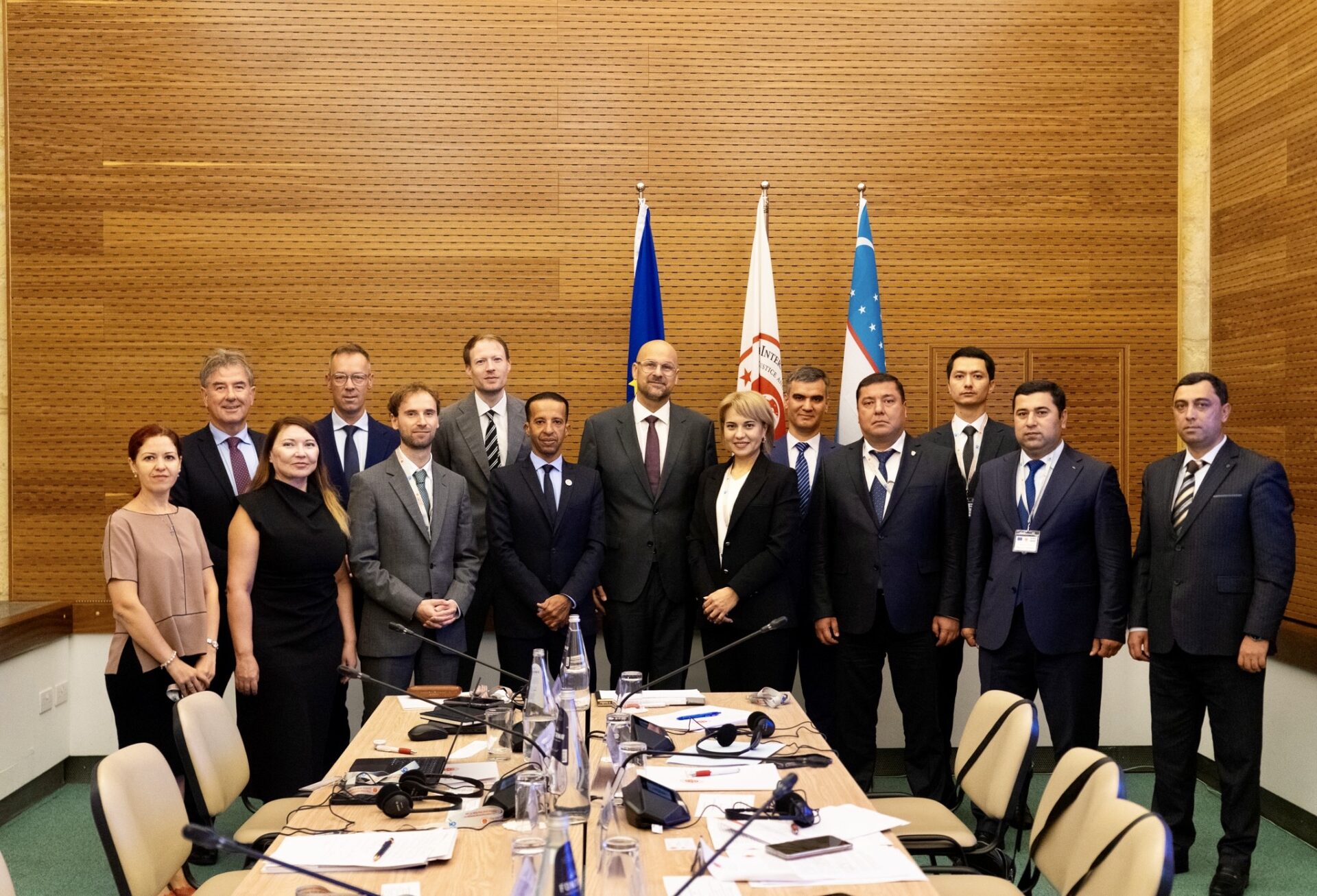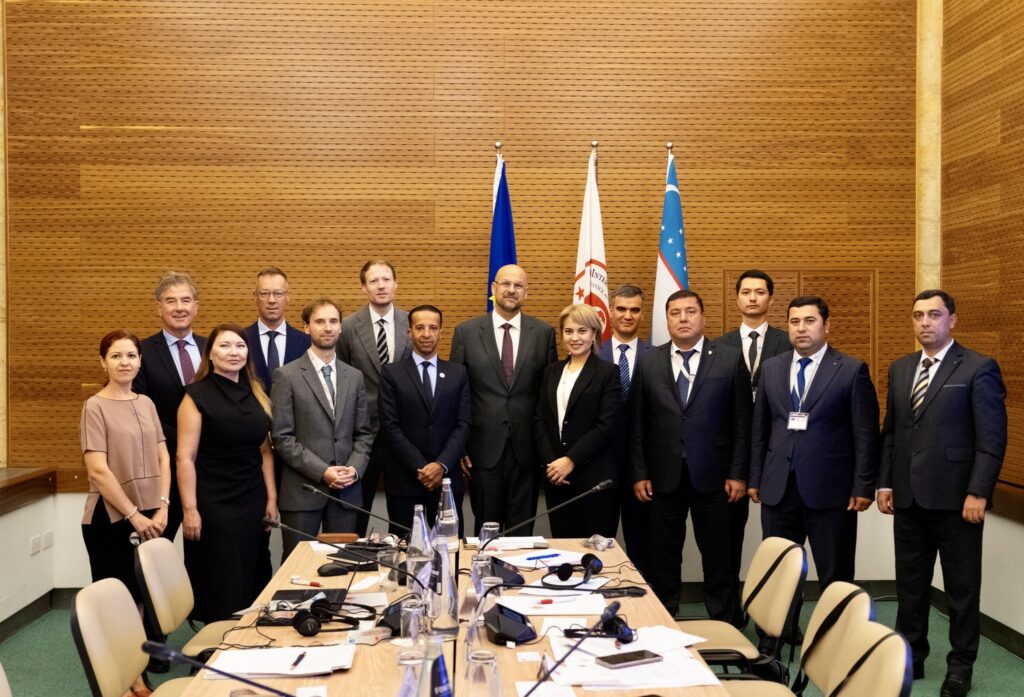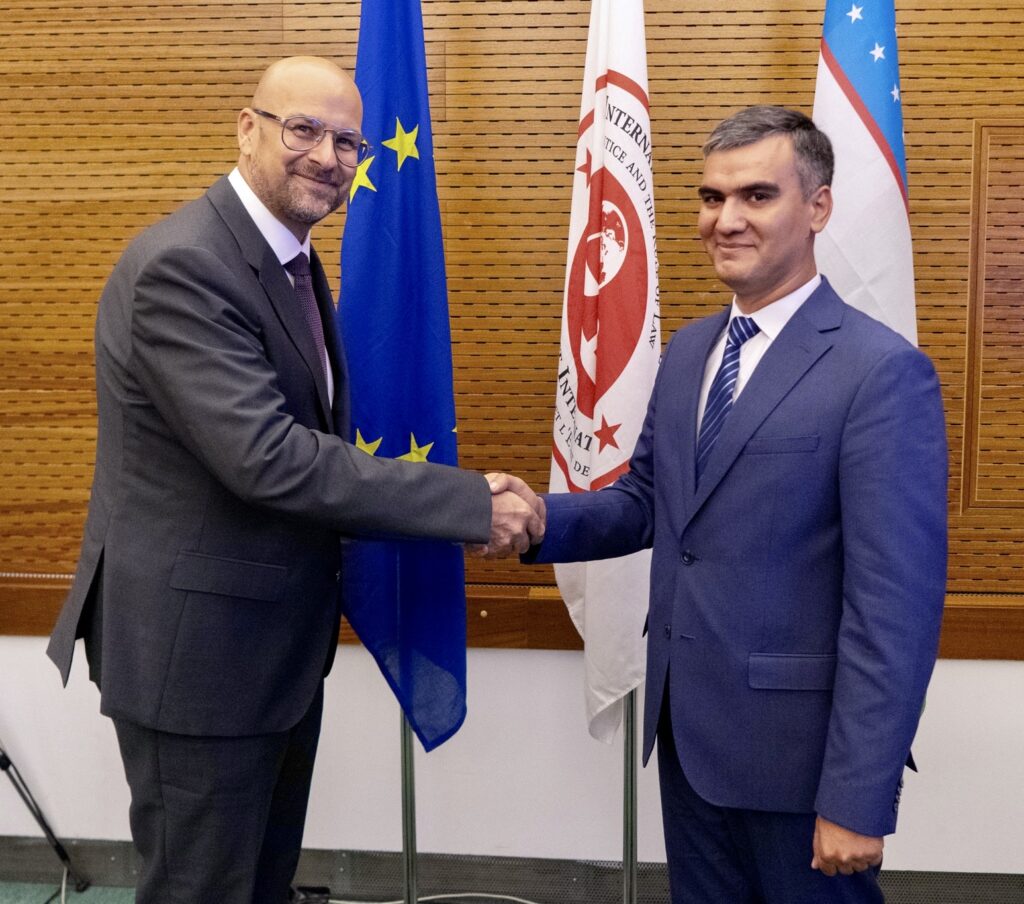
On 1-2 October, the International Institute for Justice and the Rule of Law (IIJ), with generous support from the European Commission’s Service for Foreign Policy Instruments (FPI), welcomed an official delegation from the Republic of Uzbekistan to its headquarters in Valletta, Malta.
This visit offered a valuable opportunity for the IIJ to conduct in-depth consultations with key national stakeholders, including representatives from the Supreme Court, the Institute for Strategic and Regional Studies under the President of Uzbekistan, the General Prosecutor's Office, the Ministry of Internal Affairs, and the State Security Service.
The consultation aimed to foster mutual trust and explore potential areas of engagement and collaboration between the IIJ and the Republic of Uzbekistan under a newly launched European Commission’s Foreign Policy Instruments (FPI)-funded project focused on the prosecution, rehabilitation, and reintegration (PRR) of individuals returning from Iraq and Northeast Syria to Uzbekistan and Tajikistan.

This multi-year project (2025-2028), implemented in collaboration with the other two Global Counterterrorism Forum (GCTF)-inspired institutions, GCERF and Hedayah, will see the IIJ provide specialised expertise and targeted capacity-building support to strengthen the ability of judicial and law enforcement actors in Uzbekistan and Tajikistan to investigate, prosecute, and manage cases involving returnee cases and their families, thereby supporting safe, individualised, and rights-compliant PRR processes.
In this context, the 1-2 October consultation marked a significant milestone in building mutual understanding and aligning the IIJ’s proposed work plan with Uzbekistan’s national priorities, further refining a shared vision for effective project implementation.

Following these discussions, the IIJ will analyse and consolidate the priority, needs and feedback shared by Uzbek counterparts to refine its national workplan and activity timeline. This process will ensure that the project design reflects Uzbekistan’s legal and operational context, addresses specific challenges, and ultimately contributes to the relevance, coherence, and sustainability of the initiative.
